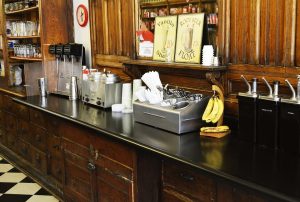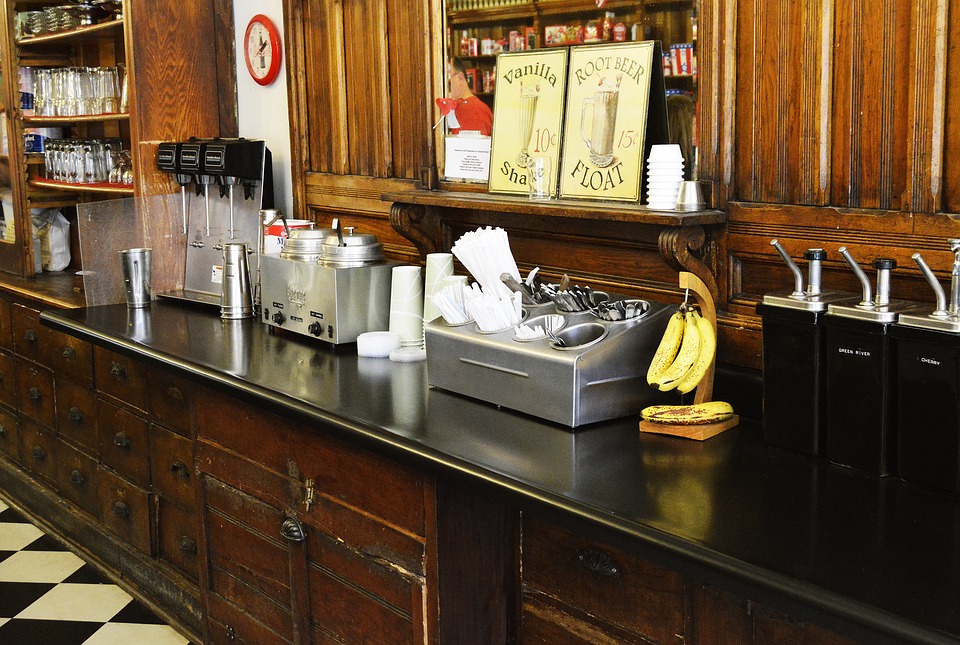 You want to make sure your store fixtures are well equipped to meet the needs of your business. From retail counters to display cases, display shelving to showcases, you want to make sure you’ve got the best. There are a ton of different materials out there to choose from, each bringing their own plusses and minuses. It’s not a decision to be made lightly; the materials you choose will effect both the look and functionality of your retail space. Fortunately, with such a wide range of possibilities, you should be able to find something that matches your usage needs, your design choices and your budget constraints. Here’s a quick look at the pros and cons of several common store fixture materials.
You want to make sure your store fixtures are well equipped to meet the needs of your business. From retail counters to display cases, display shelving to showcases, you want to make sure you’ve got the best. There are a ton of different materials out there to choose from, each bringing their own plusses and minuses. It’s not a decision to be made lightly; the materials you choose will effect both the look and functionality of your retail space. Fortunately, with such a wide range of possibilities, you should be able to find something that matches your usage needs, your design choices and your budget constraints. Here’s a quick look at the pros and cons of several common store fixture materials.
Solid surfaces, including Corian and Wilsonart, are an acrylic and polyester blend that makes for a great retail counter or other store fixture. It’s a non-porous surface, meaning there’s almost no regular maintenance required. Any scratches and burns can easily be sanded out, keeping your surface looking good even under heavy use. There’s a wide variety of color and pattern options, including options you simply won’t find in nature. Unlike engineered stone, solid surface countertops look artificial and man-made; they’re not a good replacement for granite or marble if you’re looking for a natural look. It also is more vulnerable to heat damage than other surfaces.
Wood is a surprisingly durable surface, with most scratches and nicks able to be buffed out. Wood gives your store a warm, natural, and can come in a wide range of styles and price points, depending on thickness and finish. However, wood can be easily damaged by direct heat or other sources of wear and tear. It also has a tendency to warp if not given room to breathe; you don’t want to install wood in a very tight space or on top of a substrate. It’s an easy material to work with, however, and can be shaped and built to almost any specification.
Stainless steel makes for a durable countertop that is very easy to clean. It’s a non-porous surface, so it’s water-, heat- and stain-resistant. It can make for a chic and contemporary look for your store, and can be shaped and formed to any layout or size you desire. Its reflective properties also help your store look brighter as it reflects your lights. However, stainless steel is very easy to scratch, and can be dented and dinged up under regular use. They can be very noisy, and in the winter, very cold – depending on the nature of your business, that could be a plus or a minus.
Engineered stone comes in many brands – Caesarstone, Cambria and Silestone are just three of the most popular. Engineered stone is a mixture of quartz and binding elements, giving you many of the aesthetic bonuses of natural marble, with the benefits of being a solid surface; no sealing required! Its biggest con is its price; engineered stone is one of the more expensive manufactured surfaces out there.
This only scratches the surface of your countertop possibilities. Granite, concrete, laminate, bamboo, soapstone, marble, granite, tile – there’s almost no end to your choices. An experienced designer can help walk you through all of these choices and more, helping you select the best surface for your retail space.

